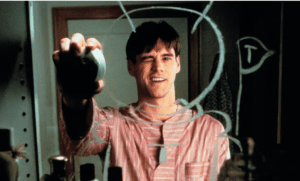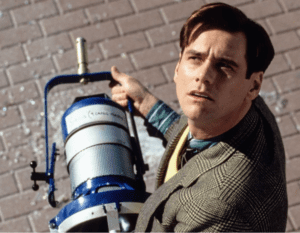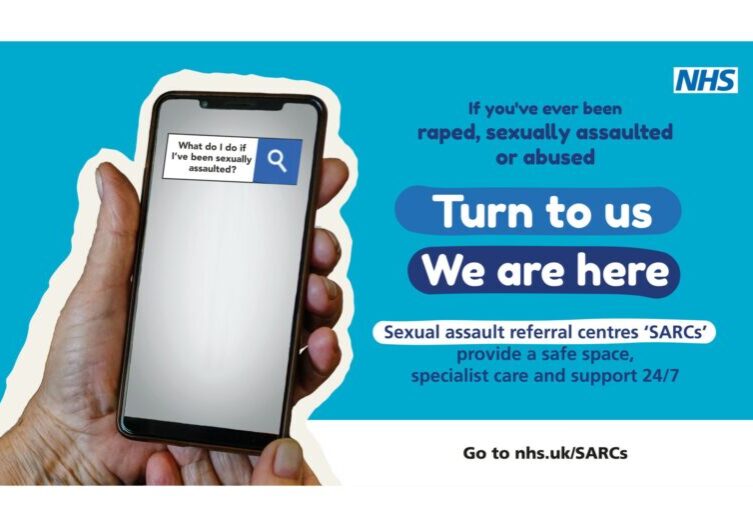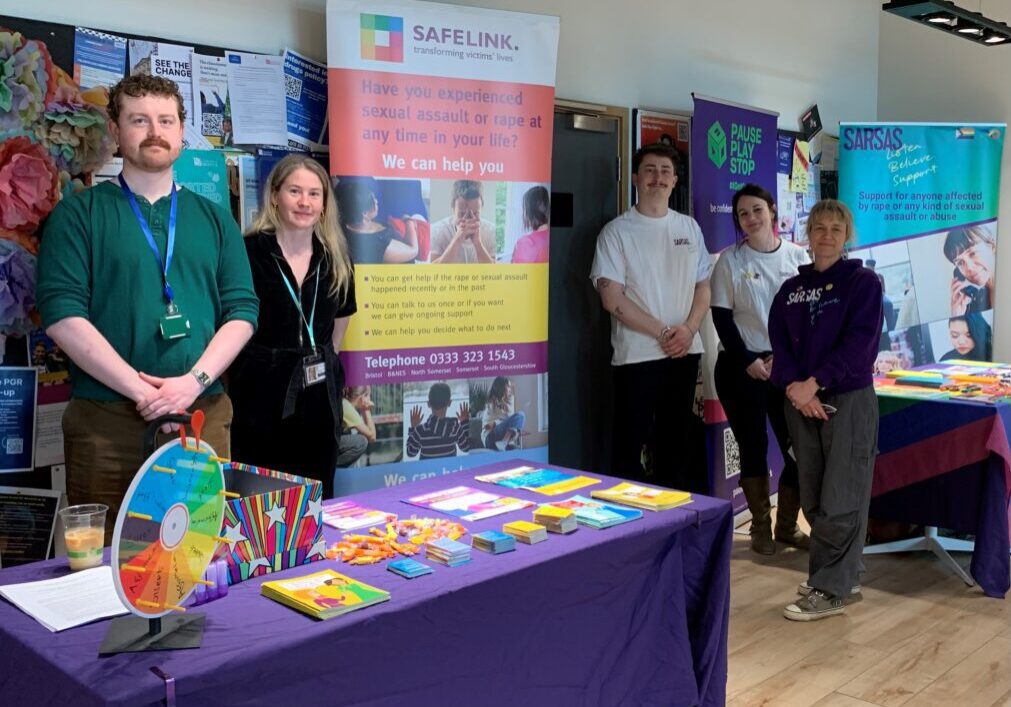
Trauma, Therapy & The Truman Show
It’s a bit of an odd title for a blog. The first two Ts go hand in hand, but what about the third? One member of the SARSAS team discusses how this ‘90s cult classic became an unlikely source of inspiration in her healing 'journey'.
**CW** This blog talks about child sexual abuse and rape
Spoiler alert! This blog also contains total plot spoilers (so, if this decades-old film is still on your bucket list, here’s a reminder to stop reading now and go and watch it!)
As a survivor of child sexual abuse (CSA), it’s only as an adult that I’ve been able to look back and see how those first early traumatic experiences shaped the rest of my life. For one, they set me off along a lonely path with shame as my constant companion. As a young teen, shame took me by the hand and led me into situations where I experienced other sexual assaults and one where I was raped.
Yet, I’ve always thought of survivors of sexual violence as incredible. We carry on surviving, even if it’s in silence. We adapt and find new ways to cope, even if they’re not sustainable in the long run. More often than not, we start to heal alone. It shouldn’t have to be this way. But for many, it’s a reality. Sadly, we know that survivors, on average, often don’t tell anyone about their abuse until decades later (if ever).
When I started learning about trauma I found it both enlightening and daunting. It was a big old beast of a topic. While the in-depth clinical stuff allowed me to understand why I’d responded to the abuse in the ways I did, it was heavy going. With that in mind, I wanted this blog to be, although still serious, a little lighter, too.
The Truman Show came out in 1998 when I was 11. The first time I rented it from the video shop (yes, I’m that old!) I was hooked. My friends soon got bored with me wanting to watch it again, and again… and again. I don’t know why I loved it so much. I certainly wasn’t old enough to appreciate its satirical take on consumerism. And I had no idea then that years later I’d use it as a metaphor for my own healing process and a tool to help me quieten the constant voice of shame.
The story follows 30-year-old Truman Burbank, a resident of Seahaven – an island resort which also happens to be the largest TV set in the world. Truman is a happy-go-lucky character with a seemingly perfect life. He always stops to pass the time of day, beginning each conversation with his cheerful catchphrase, “Good morning, and in case I don’t see ya… good afternoon, good evening and good night!”



What we know but that Truman is unaware of, is that he is the star of a 24/7 reality TV show. Christof, the show’s creator, selected Truman as a baby from an unwanted pregnancy for his psychological experiment and has carefully curated his entire life ever since.
After a series of technical mishaps (including a spotlight crashing out of the sky and a column of rain following only him) Truman grows suspicious. His paranoia increases after noticing the same people doing the same things every day. He’s even gaslit by his ‘wife’ who suggests he’s having a breakdown when he’s convinced everyone is watching him. Whenever he tries to leave Seahaven, beautifully synchronized disasters get in his way.
The film ends with Truman stealing a boat, despite being terrified of the sea and sailing away into the night. As Christof orders a storm, the world watches on, gripped by the latest drama unfolding, while rooting for Truman. As the storm rages on and lashes the boat, Truman is assumed to have drowned. But when Christof demands to “cue the sun!” we see him lying on his back. To huge cheers around the world, he coughs and sits up. After the boat bashes into a solid sky backdrop, Truman gets out and walks along the water’s edge and up a staircase to a door marked ‘Exit’.
As Truman’s world crumbles around him, you can’t help but emphasise with him. His entire life has been one big lie. And that’s exactly how I felt when I started separating the facts of my life from the lies shame had told me. My entire life felt fake. I felt fake.
After experiencing something traumatic, once, twice, many times, it changes you. Some after-effects might be instant and recognisable, while others creep up over time and linger under the surface. For me, my trauma became so suffocating, that I had nothing left to lose but to sit down with someone and slowly start to untangle it.
But… shame’s voice is loud and convincing. It can make you believe just about anything. Still, once I saw that shame’s two biggest proclamations – that I was to blame and that I was inherently bad – were both lies, there was no going back. Just like Truman couldn’t have gone back to living his perfect life in Seahaven (even if he’d wanted to) I couldn’t go back to living the life I had before. I couldn’t unsee shame’s lies.
Processing my experiences has been a series of mini revelations. When I first read about the trauma responses – fight, flight, freeze, flop, be-friend (fawn), shame shouted, “How did you manage to mess this up?”. I didn’t feel I ‘fit’ any of the five descriptions. Was there not a sixth that included everything… be-fuddled?!
It was only when I learnt you could ‘fit’ one or some or even all at once, that trauma started to make sense to me. It wasn’t fixed and static; it was fluid and ever-changing. You didn’t progress from one box to another. I realised I needed to let go of trying to control everything if I wanted to work with my trauma, not against it.
Other revelations were pretty awful. I had a moment of sheer terror when I realised there was no Holy Grail of Healing. I mean, would there never ever come a day when I would be presented with a fancy certificate with the word ‘HEALED’ stamped under my name? Sadly not. The healing process, at least how I see it now is lifelong.
So, when moments of inspiration come along, I grab them. Watching that final scene again as an adult, I see Truman as me (a survivor), Christof, the ever-present voice of shame, and people in the outside world as my cheerleaders – my friends, loved ones, therapist, and even the part of myself that’s never stopped rooting for me.
Now, no matter how many times I find myself at the top of the staircase, with shame willing me to stay wrapped up in my trauma like a prisoner, I smile, take a bow, and walk back through the door marked ‘Exit’. Each time, I stay out in the real world a little longer. I’m no longer afraid to turn my back on shame, not now it’s just a strangled whisper.
*all images from The Truman Show (1998, Paramount Pictures)
The latest from our news and blogs

What is a sexual assault referral centre (SARC)?
A SARC can offer free, confidential medical, practical and emotional support to people who have been raped, sexually abused or assaulted at any point in their lives. They’re usually provided by the NHS, but will always have specially trained doctors, nurses and support workers.




